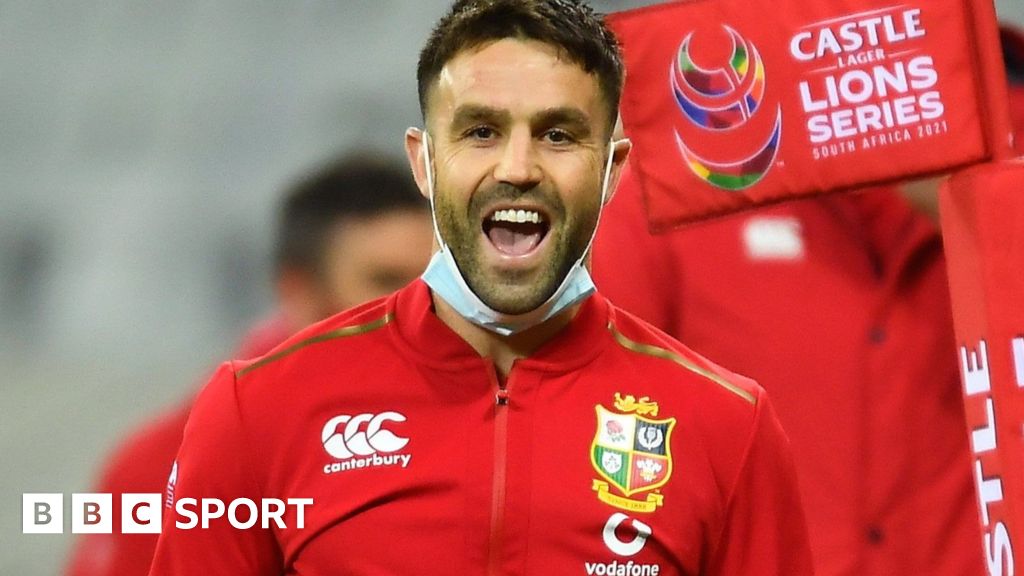ARTICLE AD BOX
Southgate's own profile had risen sharply.
He had only been a central defender for a year, having been converted from a midfielder by Aston Villa manager Brian Little.
He made his England debut in December 1995. His first international start had come just a couple of months before Euro 1996.
Yet, he had become integral, playing every minute of the tournament alongside Tony Adams in the heart of the defence.
It was a team with a wild, chaotic side. A pre-tournament trip to Hong Kong had included an infamous night out with bottles of spirits being poured down players' gullets while they reclined in in a dentist chair. On the flight back, seats and TV screens had been damaged by mile-high high-jinks.
Southgate wasn't on the night out. And, while the squad took collective responsibility for the plane damage, it was difficult to imagine even a fraction of the blame belonged to Southgate.
As a teenager at Crystal Palace's Mitcham training ground, he had stuck out; a little more provincial, a little less loud. His considered, precise way of talking earned him the nickname 'Nord', in a nod to television host Denis Norden.
His youth-team manager warned him that he would need to be tougher mentally and physically to progress to the senior side.
Quietly, Southgate took on the challenge, filling out and finding his voice.
One evening, he misjudged it. After a youth tournament in Italy and an out-of-character evening drinking tequila, he vomited over Palace chairman Ron Noades on his way back to his hotel room., external
Typically, Southgate had Noades' clothes dry-cleaned the next morning.
It was a rare, possibly solitary, misstep.
By 23, Southgate was named Palace captain, leading them to promotion out of the second tier and tangling with Roy Keane in the FA Cup semi-finals., external
Whatever he came up against - older team-mates, aggressive opponents, a switch of clubs, a change of positions - he stepped up and surprised those who thought his careful demeanour indicated a soft centre.
So, three days after the Sex Pistols gig, when England had exhausted their supply of regular penalty takers in the semi-final, Southgate, the newest and least experienced of the team, steeled himself and stepped up again.
“I was a volunteer, really," Southgate said in 2018.
"The type of character I was, I felt you should put yourself forward."
It wasn't the first time.
In October 1992, one of Southgate's Palace team-mates had lost his nerve over a late spot-kick to win a game at Ipswich. Southgate had taken it on instead, hitting the post. Palace were ultimately relegated on goal difference.
Southgate hadn't taken a penalty since.
His strike at Wembley was solid, but too central. Germany goalkeeper Andreas Kopke guessed right and blocked with relative ease.
The ball ricocheted away, and, from Wembley outwards, a bubble burst and a world crashed down.
The next morning, Southgate flew to the Indonesian island of Bali with his girlfriend, attempting to escape the emotional aftershock.
A few days into their holiday, while trekking up a volcano, a local man asked Southgate if he was English. On receiving confirmation, his face lit up. "You, penalty drama," he said.
Southgate returned to sacks of supportive letters from fans who had seen how the same shootout experience six years earlier had chewed up Pearce and Chris Waddle. One was from Prime Minister Tony Blair.
Southgate gave an interview later that summer., external
“I don't think you ever get that sort of thing out of your system," he said.
"I’m sure people will always say: 'He was the idiot who missed the penalty.' But hopefully I’ve got enough time in my career to do other things.
"I've got the ambition and the ability to make people remember me in other ways."

 3 months ago
23
3 months ago
23








 English (US)
English (US)